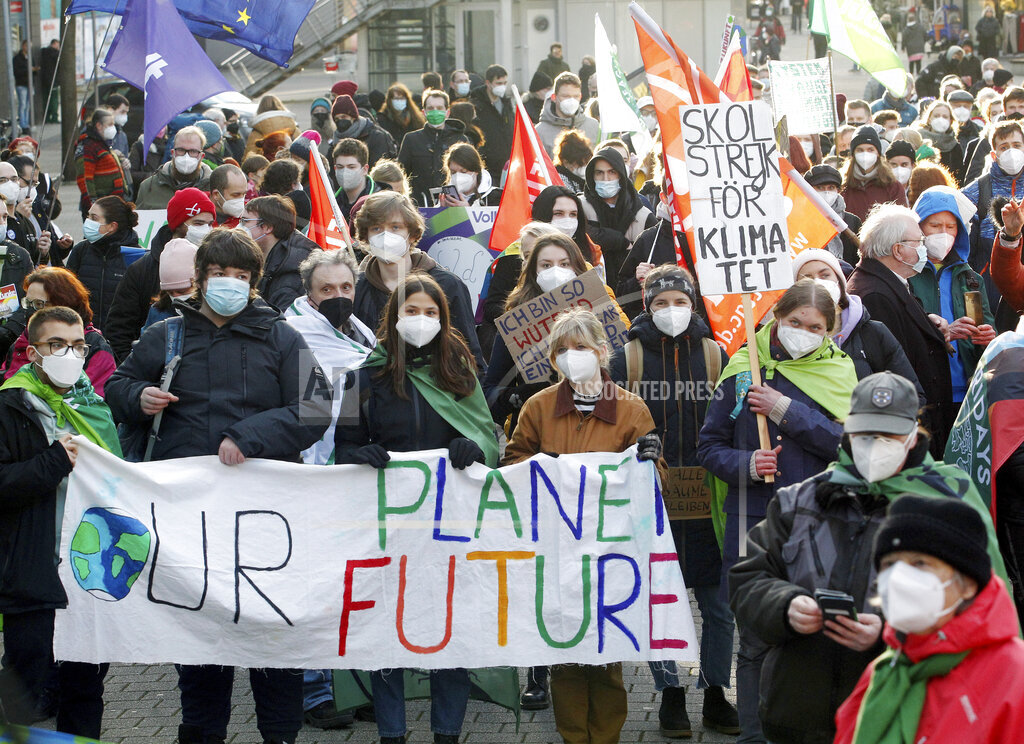
Climate change is an increasingly pressing issue. The 2021 Intergovernmental Panel on Climate Change (IPCC) report concluded that the transformations seen to the planet’s climate have been unprecedented. The report also stated that the planet will reach or exceed 1.5 degrees Celsius of warming within the next two decades, which would entail flooding due to the melting of ice caps, crop failures and other detrimental environmental shifts. While change beyond that is still preventable, it will require substantial transformative action. These findings showcase the urgency of climate change prevention.
In order to minimize the negative effects of climate change, the American government needs to reclaim its roots in bipartisanship. The world needs the United States, which is such a pivotal actor in international relations, to implement policies that will not be fundamentally overturned by a switch in governing majority.
This is largely influenced by politics’ role in public opinions on climate change. It cannot be denied that political figures, as well as their policies, influence the populations they govern. If those in positions of authority do not vocalize the severity of climate change, the public will not recognize the issue’s magnitude.
However, political discussions about climate change have not always been as partisan as they are today. Republicans tend to vote in favor of more conservative climate-related policies, whereas Democrats tend to be in greater support of remediation efforts, progressive laws and regulations. However, a mere 50 years ago, climate change mitigation policies enjoyed significantly more bipartisan support.
Former President Richard Nixon’s administration spearheaded a variety of progressive environmentalist efforts. Following his inauguration in 1969, a large oil spill off the coast of Santa Barbara, California polluted thirty miles of California’s coastline. Nixon’s Secretary of the Interior, Walter Hickel, quickly pivoted to pass new regulations on offshore drilling. This helped set the precedent for a new era of environmental protection with the Nixon administration taking a strong lead.
The Nixon administration also founded the Environmental Protection Agency (EPA) in 1970 which is still prominent today. By showcasing his strong support for these policies, he showed the nation that environmentalism was a cause that warranted substantial care and concern.
This support of environmentalism dwindled as conservative Republicans grew concerned over how climate change remediation efforts would work in conjunction with maximizing economic growth. In 1972, Republicans promised to “pledge a workable balance between a growing economy and environmental protection”. This wording was intended to appeal to an uneasy voter base concerned over their stakes in the economy. In concurrence with this shift in attitudes towards environmentalism, Nixon also vetoed the Clean Water Act, which would regulate pollutant discharges into the United States’ water, in pursuit of gaining more support among pro-business Republicans. This is one of the first times that environmentalism had been noticeably politicized.
The most noticeable shift away from bipartisan attitudes towards environmentalism occurred in 1981 with Ronald Reagan’s inauguration. His administration was in favor of strengthening the nation’s economy through the easing of regulations and the opening of public lands for development. Reagan’s Secretary of the Interior and head of the EPA both worked to undo environmental regulations.
The shift away from bipartisanship continued to progress through the 1980s and 90s, particularly during the 1994 Congressional midterm elections, when the Republican party won control of both the House of Representatives and Senate for the first time in forty years. This is often referenced as the “Republican Revolution,” and served as a significant stepping-stone in the Republican Party’s move towards a more conservative agenda.
Following this shift, conservative political interest groups began to lobby for more constant efforts from Republicans in opposition to policies addressing climate change. One of the most significant examples of this was the “No Climate Tax” pledge, drafted by Americans for Property and funded by the Koch brothers.
“I will oppose any legislation relating to climate change that includes a net increase in government revenue,” the pledge said.
This effort gained significant traction the following year in the House of Representatives when it passed cap-and-trade legislation. This concept was invented by conservative Reagan-era economists, intending to create a limit on how much pollution businesses could emit.
Conservative activists saw this legislative effort as an opportunity to shift the climate debate. With the aid of oil-industry-funded academics such as Wei-Hock Soon of the Harvard Smithsonian and think tanks such as the Competitive Enterprise Institute, they worked to discredit academics and government climate change scientists. Chris Horner, a lawyer and conservative activist, gathered documents through the Freedom of Information Act to undermine climate change research.
Until 2010, some Republicans had been running advertisements in House and Senate races showing their support for green energy. After 2010, that kind of mutual effort disappeared. This was largely on account of Americans for Prosperity, implying that its financial support for Republican candidates would disappear if Republicans were to show support for green energy. As a result, on Election Day in 2010, 165 congressional members and candidates had signed the Americans for Prosperity’s “No Climate Tax” pledge. That midterm election proved itself a clear rejection of policies such as the cap-and-trade energy tax, and a significant step towards the partisan view of environmentalist policies and initiatives that exists today.
Since 2010, the two dominant political parties have grown increasingly polarized over climate change policies. Ezra Klein, an American journalist, authored Why We’re Polarized, which explains the intricacies of political polarization in depth.
Some of the ideas he touches on include negative partisanship, which he describes as partisan behavior driven by negative feelings towards the party one opposes rather than positive feelings towards the party one supports. As liberals’ support grew for climate change prevention policies, conservative support shifted in the opposite direction, leaving little room for collaboration efforts.
This is unproductive in the fight to mitigate the long-lasting effects of climate change; the United States needs to join other countries in forming a consistent understanding of their impact on climate change policies. The only way to achieve this is for the United States to achieve bipartisan agreement in the House and Senate and implement increasingly sustainable climate change mitigation policies and regulations.
However, this may be difficult to achieve until the economic pressure from Republicans is alleviated and the wellbeing of the nation is prioritized above economic yield. Another step could be the abolishing of the filibuster: a tradition pursued by the minority party to prolong debate and prevent the passage of policy. The future is murky; it is unclear which steps can be taken and how long they will take to achieve.


